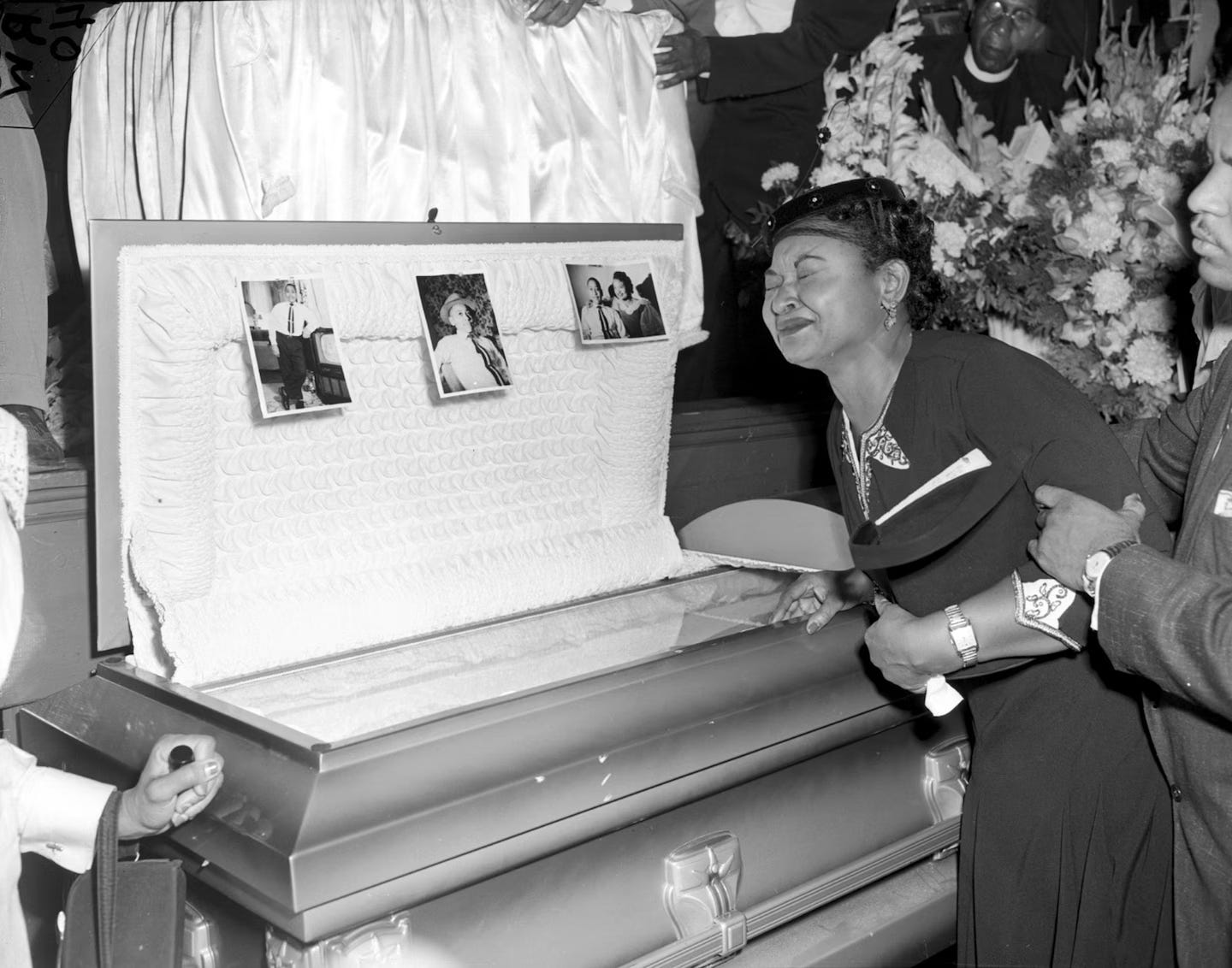On This Day in 1955: The Murder of Emmett Till and the Spark of a Movement
A brutal injustice that became a rallying cry for civil rights
Innocence Meets Hatred in Mississippi
On this day in 1955, a 14-year-old boy named Emmett Till was murdered in Mississippi, his life cut short in an act of racial violence so barbaric it still chills the blood. He had travelled from Chicago to visit family, unaware that his confident smile and light-hearted nature would collide with the poisonous atmosphere of the Deep South.
Accused of whistling at a white shop clerk, Till became a target of fury. Within days, he was dragged from his great-uncle’s home, beaten beyond recognition and shot before his body was dumped in the Tallahatchie River. His signet ring, engraved with the initials of his late father, was the only object that allowed his family to confirm his identity.
The cruelty of this act was not simply personal malice; it was the embodiment of a system that thrived on fear and submission. A child’s alleged whistle had been turned into a supposed affront to white supremacy, and in Mississippi of 1955, that accusation was a death sentence.
A Mother’s Resolve and an Open Casket
When Emmett’s body was returned to Chicago, his mother, Mamie Till-Mobley, made a decision that would resonate across the world. She demanded an open casket funeral, insisting that the world must see what had been done to her son. The sight of his mutilated face, published on front pages, exposed the raw brutality of racial hatred in America.
Nearly 100,000 mourners filed past his coffin over four days. They were not only saying farewell to a boy whose promise had been stolen, they were recognising a truth that could no longer be hidden. Till’s mother had turned private grief into public testimony, and in doing so she laid bare the moral corruption of a nation.
It was not just a personal act of defiance; it was a deliberate act of history-making. By refusing to remain silent, Mamie Till forced the world to confront what many had preferred to ignore.
Courtroom Farce and National Fury
When the men responsible were brought to trial, there was hope that the evidence would speak for itself. Emmett had been abducted in front of witnesses, his body identified by family, and testimony placed the accused directly in the crime. But in a Mississippi courtroom filled with hostility, an all-white jury deliberated for just an hour before declaring them not guilty.
Justice was mocked, but history was watching. This miscarriage of justice was not the end of the story, it was the beginning of something far larger. For every voice silenced in that courtroom, hundreds more found the courage to speak.
The injustice of the trial exposed the chasm between American ideals and American realities. In the face of such stark failure, silence became complicity. Many who had previously stood at the margins of struggle now recognised they had to step into its centre.
Legacy of Defiance and the Birth of a Generation
The murder of Emmett Till became more than an outrage, it became a catalyst. His name carried through sermons, speeches and protests, shaping the consciousness of a movement. When Rosa Parks refused to give up her seat on a Montgomery bus later that same year, she carried with her the memory of Emmett Till. His story gave strength to those who could no longer endure humiliation without resistance.
In the years that followed, a generation of young activists, students and leaders came to be known as the Emmett Till generation. They were united not just by grief, but by a shared determination that his sacrifice would not be in vain. His face, once unrecognisable in death, became unforgettable in memory.
To speak of civil rights in America without speaking of Emmett Till is to ignore the flame that lit the fire. On this day in 1955, the life of one boy was stolen, yet in that loss, a movement found its voice.
Reflection on History’s Weight
History is never distant. It lives in the echoes of decisions, in the courage of mothers who refuse silence, in the actions of communities that refuse to bow. The murder of Emmett Till remains one of the most haunting episodes of modern history, not only for the cruelty inflicted on a child, but for the clarity it brought to a nation divided against itself.
On this day, we remember not simply what was taken, but what was created in its aftermath. A movement fuelled by outrage, dignity and the refusal to accept a world where a boy could be murdered for a smile and a whistle.
The legacy of Emmett Till is not only carved in stone memorials or etched in textbooks, it is carried in the determination of those who continue to fight against injustice. Each act of courage, each refusal to be silent, is part of the same lineage that began when a mother lifted the veil from her son’s coffin and demanded the world to look.


